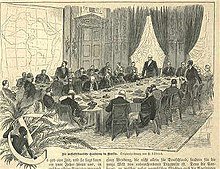Montaigne hates innovation: "Nothing harries a state except innocation; change alone gives form to injustice and tyranny." In the Essays, innovation is...
A social and political component is present in all this fear of the new, but something else lies behind it, something religious that is more archaic and pagan than Christian.
We have many echoes of this in Shakespeare. In Henry IV, the king speaks:
Poore
Discontents, which gape, and rub the
Elbow at the newes
of hurly burly innovation.
In 1639, Webster mentions "the Hydra-headed multitude that only gape for innovation."
Even if the bad connotations of our word occasionally resurfaced in the 18th century, the story of the hour...
The reason, of course, was the shift away from theology, and even philosophy, towards science and technology.
As early as the beginning of the 19th century, innovation became the god that we are still worshiping today.
As I said before, the negative view of innovation is inseparable from a conception of the spiritual and intellectual life dominated by stable...
External mediation gives way to a world in which...
This seems to go without saying. Our world has always believed that "to be innovative" and "to be imitative" are two incompatible attitudes.
The romantic historian puts innovation on a par with foundation and creation itself, the creation ex nihilo, no doubt, that, up to that time, had been exclusive monopoly of...
A complete break with the past is viewed as the sole achievement worthy of a "creator."
Just as the measure of a painter's talent is now his capacity to innovate in painting, the measure of a lover's love is his or her capacity to innovate in the...
This is how inconsistency has become the major intellectual virtue of the avant-garde. But the real credit for the tabula rasa school of innovation should go to Nietzsche, who was tired of repeating with everybody else that a great thinker...
This is still a sensation that is being piously repeated today.
Nietzsche is our supreme model of model-repudiation, our revered guru of guru-renunciation.
This extreme view of innovation has been dominant for so long that even our dictionaries take it for granted. Innovation is supposed to exclude imitation as completely...
This conception is false, I believe, but its falsity is easier to show in some domains than in others.
It is not difficult to observe the type of behavior that fosters..
It is anything as yet untried that gives...
Business people can speak lyrically about their mystical faith in innovation and the brave new world it is creating, but the driving force...
Business firms must innovate in order to remain competitive.
Competition, from the Latin words, cum and petere, means to seek together.
When a business loses money, it must innovate very fast, and it cannot do so without forethought. Usually there is neither money nor...
"If our competitors are more successful than we are, they must be doing something right. We must do it ourselves and the only practical way to go about...
This common sense makes less sense than it seems.
To begin with, is there such a thing as "absolute innovation"?
In the first phase, no doubt, imitation will be rigid and myopic. It will have the ritual quality of the external.
I am not denying the specificity of innovation. I am simply observing that, concretely, in a truly innovative process, it is often so continuous with imitation that its presence can...
Our age tries to overcome the modern obsession with the "new" through an orgy of casual imitation, an indiscriminate adoption of all models.
If such is the case, post-modernism is only...
- Some notes from "Innovation and Repetition" by Rene Girard
@MimeticValue @dopaminendreams @pmarca @startupdaemon @GirardForum @BrunoPerennou @tellfisher


















